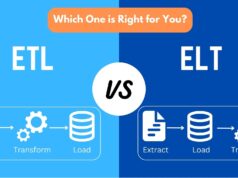In the complex world of business management, payroll stands out as a critical, yet challenging task. It involves the meticulous calculation of wages, withholding the right amount of taxes, and ensuring employees receive their paychecks on time.
Traditionally, this process was done manually, a method that, while feasible, is fraught with challenges. In contrast, modern businesses increasingly rely on payroll software to streamline this task.
This article delves into the reasons why embracing technology for salary administration is not just beneficial, but essential for businesses today.
Understanding Manual Payroll
Manual payroll processing is the traditional method of managing employee payments. It involves tracking work hours, calculating wages, determining tax withholdings, and issuing payments without the aid of specialized software. The approach is often characterized by physical timesheets, handwritten records, and manual calculations.
Pros and Cons

Pros
- Initial cost savings ─ Manual payroll can be more cost-effective initially, especially for small businesses. It eliminates the expenses associated with purchasing and maintaining payroll software.
- Control over the process ─ Some business owners value control and direct involvement in managing salary administration. It allows them to oversee every aspect of the process closely.
- Simplicity in smaller operations ─ For very small businesses with a few employees, manual payroll can be straightforward and manageable.
- No dependence on technology ─ This method doesn’t rely on technological infrastructure, which can be advantageous in areas with limited tech resources.
- Ease of customization ─ Manual salary administration processes can be easily customized to fit specific business needs without the constraints of software functionalities.
Cons
- Time-consuming ─ Manual payroll demands substantial time and effort. Each pay period requires several hours of calculations and meticulous record-keeping.
- Error-prone ─ The risk of human error is significant in manual calculations, leading to potential issues with paychecks and tax submissions.
- Lacks scalability ─ Manual salary administration is not scalable. As a business grows, the system that works for a few employees becomes unmanageable for larger teams.
- Compliance challenges ─ Keeping up with changing tax laws and regulations manually increases the risk of non-compliance and associated penalties.
- Limited data security ─ Manual payroll processes often lack robust security measures, increasing the risk of sensitive data being compromised.
- Reduced employee accessibility ─ Unlike software solutions, manual salary administration doesn’t provide employees with easy access to their pay records and tax documents.
- Higher long-term costs ─ In the long run, the time and resources spent on manual payroll can exceed the cost of a software solution.
- Difficulty in data analysis ─ Analyzing payroll data manually for insights and reporting is more challenging and time-consuming.
Reason 1 ─ Accuracy
One of the most compelling reasons to use salary administration software is the accuracy it offers. Manual payroll processes are highly susceptible to human error. Simple mistakes in calculations can lead to significant issues, such as overpaying or underpaying employees, incorrect tax withholdings, and compliance violations. These errors are not just inconvenient; they can be costly, leading to penalties and disgruntled employees. Payroll software automates calculations, ensuring each paycheck is accurate to the last cent.
Reason 2 ─ Time Efficiency

Time is a valuable commodity in business, and payroll software significantly saves time compared to manual processes. Manual salary administration requires meticulous attention to detail and can consume hours, if not days, each pay period. This time commitment increases with the number of employees. With software, the time spent on payroll is drastically reduced, allowing business owners and HR personnel to focus on more strategic tasks that contribute to business growth.
Reason 3 ─ Compliance with Tax Laws
Tax laws are complex and ever-changing. Staying compliant manually is a daunting task. Salary administration software is updated regularly to reflect the latest tax rates and regulations. This ensures businesses stay compliant with minimal effort. Non-compliance can lead to hefty fines and legal troubles, making the accuracy provided by software not just convenient, but essential.
Reason 4 ─ Integration Capabilities
Modern payroll software often integrates seamlessly with other business systems such as time tracking, human resources, and accounting software. This integration streamlines workflows, reduces the need for duplicate data entry, and minimizes errors. For instance, time tracking software can feed data directly into the salary administration system, ensuring accurate pay for hours worked.
Reason 5 ─ Security
Payroll data is sensitive. It includes personal employee information and financial details. Manual salary administration systems are vulnerable to security breaches, data loss, and privacy violations. Payroll software typically offers robust security features like encryption, secure data storage, and controlled access, which protect this sensitive information from unauthorized access and data breaches.
Reason 6 ─ Employee Self-Service

Many payroll software solutions include employee self-service portals. These portals allow employees to access their pay stubs, tax documents, and personal information online. This feature not only empowers employees but also reduces the administrative burden on HR staff, as employees can update their details and access information independently.
Reason 7 ─ Scalability
As businesses grow, their payroll needs become more complex. Payroll software scales with the business, accommodating additional employees, varied pay structures, and changing compliance requirements with ease. This scalability ensures that the salary administration system grows alongside the business, providing a sustainable solution for the long term.
Reason 8 ─ Reporting and Analytics
Payroll software often includes reporting and analytics capabilities. These tools provide valuable insights into labor costs, salary administration expenses, and tax liabilities. They help businesses make informed decisions about budgeting, resource allocation, and strategic planning.
Reason 9 ─ Professional Support and Updates
When you use payroll software, you often have access to professional support and regular updates. This means that if you encounter issues or have questions, expert help is available. Additionally, software updates ensure that your system is always up-to-date with the latest features and compliance requirements.
Reason 10 ─ Environmental Friendliness

Lastly, payroll software is environmentally friendlier than manual processes. It reduces the need for paper, printing, and physical storage, aligning with the growing trend towards sustainability in business operations.
Conclusion
While manual payroll processing is feasible, the benefits of using payroll software are too significant to ignore. From ensuring accuracy and compliance to saving time and supporting business growth, technology in payroll is no longer a luxury but a necessity.
Embracing salary administration software is a smart move for any business looking to streamline its operations and focus on growth and success.















